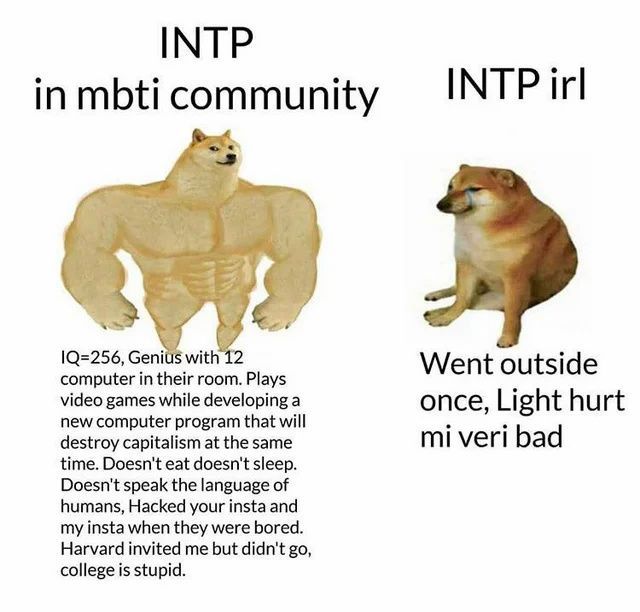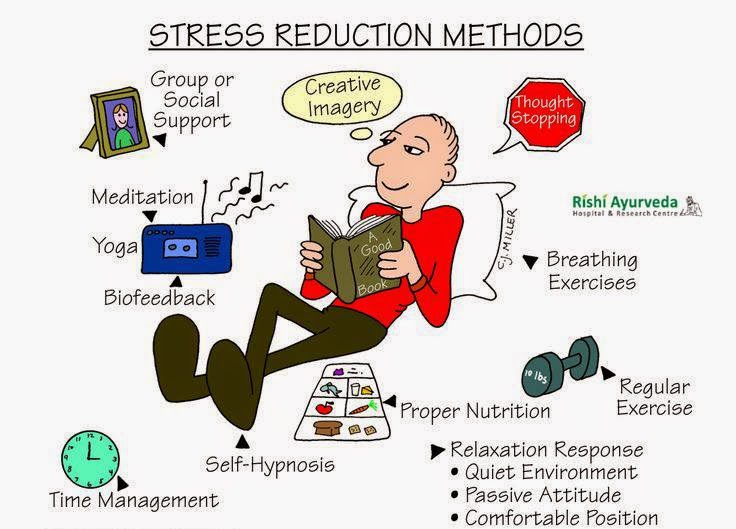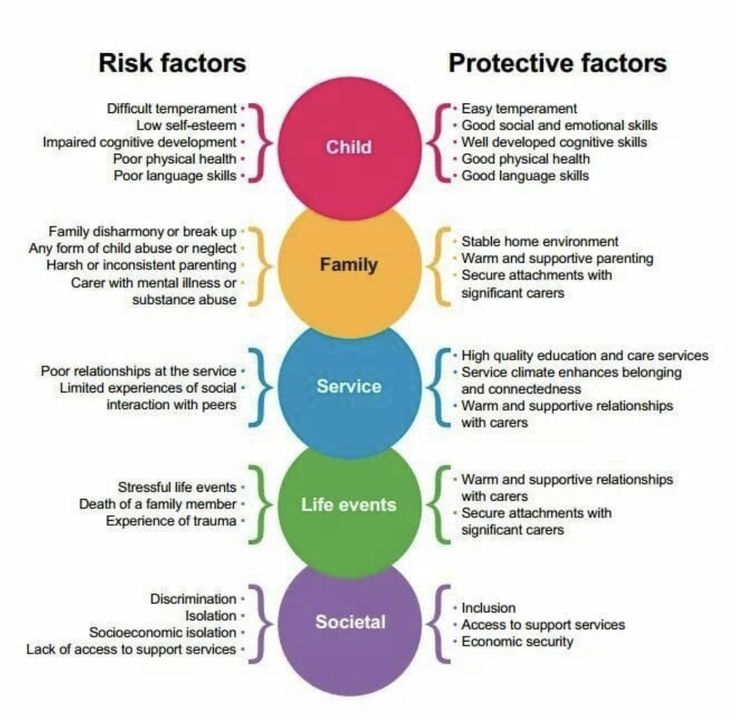How to deal with jealousy in marriage
What to Do When Your Jealousy Threatens to Destroy Your Marriage
"...we go through extreme contortions to try to protect ourselves from the possibility of loss and pain. Yet, these attempts to protect ourselves may actually be the means with which we destroy that which we are trying to preserve."
Tweet
What is Irrational Jealousy?
Frequently, I am asked how to handle irrational jealous feelings. Usually, the individual recognizes that her feelings are unreasonable with no valid evidence but feels incapable of controlling the jealousy. In addition, the person usually recognizes the destructive nature of indulging in the feelings and the resulting behavior. Such behavior typically involves excessive questioning of her spouse, suspiciousness, and accusations. Many spouses become extremely frustrated with this behavior because they have no way of proving their faithfulness.
This leads to an escalating cycle of anger which is used as further evidence by the jealous spouse that her suspicions are correct.
The jealous spouse often desperately wants to stop the behavior but finds that he can't control the thoughts which makes him feel miserable. He believes that if he can just prove his suspicions one way or another, he will feel better. The unfortunate fallacy in this thinking, is that trust can never be proven; it can only be disproved. The definition of trust is the belief that something is true. Therefore, without evidence to the contrary, if we want a satisfying relationship, we have to choose to trust the person we love.
One of the most difficult things for human beings, in general, is not knowing something with 100% certainty. We are often afraid to trust because we are fearful of disappointment and hurt. Therefore, we go through extreme contortions to try to protect ourselves from the possibility of loss and pain. Yet, these attempts to protect ourselves may actually be the means with which we destroy that which we are trying to preserve. In other words, a woman may eventually destroy her marriage because she is too fearful to take the chance of trusting that her husband is faithful. As a result, she causes the loss and pain that she was trying to prevent.
In other words, a woman may eventually destroy her marriage because she is too fearful to take the chance of trusting that her husband is faithful. As a result, she causes the loss and pain that she was trying to prevent.
What Causes Irrational Jealousy?
For a person to learn to control jealousy, it is first important to understand what underlies the irrational thinking. Frequently, an individual who is prone to irrational jealousy may have problems with low self-esteem, feelings of insecurity, fear of vulnerability, or fear of abandonment.A person with low self-esteem may feel so undeserving of being loved, that he can't believe that his spouse could possibly remain faithful to him. Perhaps these feelings stem from some abusive past relationship in which he was unloved and made to believe that he was at fault. For instance, if a teenager is told, "If only you were more like your brother, then maybe you could get a girlfriend" he comes to believe that there is something wrong with him.
Feelings of insecurity may stem from the low self-esteem or may be related to instances in which we have previously been hurt. The same is true with fear of abandonment. When we have experienced profound loss from which we haven't had an opportunity to recover, we may develop an extreme fear and avoidance reaction to similar circumstances. However, as indicated earlier, this avoidance may bring about the abandonment that we fear.
Fear of vulnerability is the inability to let our guard down, to let another person know us completely. This fear usually derives from a fear of rejection due to the belief that if we let someone else truly know us, we will ultimately be rejected. Again, the fallacy in this belief, is that if we don't allow our spouse to know us, if we don't allow ourselves to be vulnerable, we are preventing the development of emotional intimacy which is essential to any relationship.
Emotional intimacy is the most important type of intimacy in a relationship. It is required for the relationship to fully mature. Without it, all we have is the initial surface attraction to the other person which cannot be maintained indefinitely. However, when we find emotional intimacy with another person, we discover the most intensely fulfilling experience that exists. And that is, the full acceptance of our self by another person. I know some people may argue with me and say that "the most intensely fulfilling experience that exists" is our relationship with God. The reason I say that it is the development of emotional intimacy with another person, is because acceptance from God is a given and doesn't require as much of a risk.
Finally, the individual needs to determine if there are certain behaviors from herself or from her spouse that may contribute to the development of these fears and beliefs. For instance, perhaps a spouse is reluctant to share personal information because he will then be subject to questioning and accusations. As a result, emotional intimacy in the relationship declines. The person who is jealous will often take this as further evidence of cheating in the relationship, when, in fact, it is a result of the questioning and accusations. Or, for example, a jealous person has repeatedly harmed relationships through his accusations which he takes as evidence that women can never be trusted.
As a result, emotional intimacy in the relationship declines. The person who is jealous will often take this as further evidence of cheating in the relationship, when, in fact, it is a result of the questioning and accusations. Or, for example, a jealous person has repeatedly harmed relationships through his accusations which he takes as evidence that women can never be trusted.
The more you are aware of your behaviors and other's behavior that may maintain the beliefs, then you will be able to make better choices that can allow you to control the jealousy. In fact, the development of awareness can't be emphasized enough. You may need to spend some time at this point to assess your jealousy, the behaviors, and the outcomes based on the behaviors.
How Do You Stop Irrational Jealousy?
Once you have determined the behavior, then you can make choices to change the behavior. Even though these feelings seem uncontrollable, that doesn't mean they are uncontrollable. However, you may need to make a commitment to the hard work involved in making changes.
The following steps can help you with these changes:
Step 1. Stop jealous behaviors.
If you are questioning or making accusations, stop the behavior immediately. Whether you need to literally bite your tongue, go to another room, or talk to a friend, don't allow yourself to continue with this destructive behavior. Usually people engage in this behavior because initially it is reassuring to them and makes them feel better. But remind yourself that feeling better is just temporary and that it is a destructive behavior that must stop.
Changing emotions or how you feel about yourself is a difficult task that takes time. You need to learn to identify the problem areas and then challenge them over an extended period of time to see change. However, what you need to consider is that the most destructive thing to your relationship is your jealous behaviors. These can be addressed immediately even if you haven't changed the underlying causes of the jealousy.
Therefore, the first step is to identify the jealous behaviors. Make a list of the behaviors in which you engage that create problems in your relationship. If possible, talk to your significant other and find out what bothers him or her. Some behaviors to consider are:
Make a list of the behaviors in which you engage that create problems in your relationship. If possible, talk to your significant other and find out what bothers him or her. Some behaviors to consider are:
1) Do you question your spouse in detail about his or her day looking for discrepancies? Even if you think you are being clever in how you phrase your questions, your spouse will catch on to what you are doing and it will be an irritant.
2) Do you accuse him or her of paying too much attention to someone else or of looking at some attractive person?
3) Do you question him or her in detail about past relationships? Sometimes people do this under the guise of full disclosure or honesty but it will be clear to your spouse that you are just feeding your jealousy.
4) Do you check emails and phone records? Do you then question about unknown numbers and require proof about the identity of the person?
5) Do you control with whom your spouse can associate?
6) Do you sabotage your partner's efforts to look attractive? For example, if she is on a diet and you bring home junk food.
7) Do you belittle your partner and try to make him or her believe that no one else could love him/her the way you do?
The above are just some of the common destructive behaviors. Try to identify your behaviors specifically. If you have trouble with this you could even keep a journal (which can even be a piece of paper you keep with you) and whenever you notice a behavior, write it down. Sometimes to notice a behavior you may first notice the outcome of a behavior such as an argument. So, you might write down every time you argue and try to determine what behavior preceded the argument.
Once you have identified the behaviors, try to include other specifics about the behavior such as:
1) When did the behavior occur?
2) What happened right before the behavior?
3) What was your emotional state right before the behavior?
4) What was your emotional state after the behavior?
5) Was there some reinforcement of the behavior? For example, did you have make-up sex after the argument?
Not all of these questions will provide useful information. However, you want to look at your answers to determine any patterns that might occur. For instance, if you noticed that you tend to engage in the behavior when you've had a stressful day at work, then that pattern would tell you to be on the look-out for the behavior after work. Or if you notice that you tend to engage in the behavior after you and your spouse have attended a party, then you know you need to be careful after a party.
However, you want to look at your answers to determine any patterns that might occur. For instance, if you noticed that you tend to engage in the behavior when you've had a stressful day at work, then that pattern would tell you to be on the look-out for the behavior after work. Or if you notice that you tend to engage in the behavior after you and your spouse have attended a party, then you know you need to be careful after a party.
Once you have identified the behaviors and when and how they are likely to occur, you need to make a plan to stop the behaviors. If you have identified a certain pattern when they are likely to occur, you could try changing your routine. For example, if it occurs when you've been stressed at work, you might talk with a friend to unwind or you might go play racquetball to work off the stress.
If you are questioning or making accusations, you may need to be very firm with yourself and tell yourself to "Stop." Once will not be enough. You will need to keep reminding yourself. Also, remind yourself of how the behavior is hurting your relationship. Have someone you can call when you are having trouble resisting. For some people, depending on your relationship, your spouse might be able to assist you. For example, you could tell your spouse not to answer your questions or to walk away. However, ultimately, it is important for you to take control of your behavior.
You will need to keep reminding yourself. Also, remind yourself of how the behavior is hurting your relationship. Have someone you can call when you are having trouble resisting. For some people, depending on your relationship, your spouse might be able to assist you. For example, you could tell your spouse not to answer your questions or to walk away. However, ultimately, it is important for you to take control of your behavior.
When people change behaviors, they often believe that the change should be reward enough. However, the jealous behaviors are often very powerfully reinforcing so you need something to counteract that reinforcement. So, when you are doing well or you resisted an urge to engage in the jealous behaviors, give yourself a reward. Rewards can vary according to each person so it may be a good idea of making a list of things you can do to reward yourself. And, if your spouse is willing, have him or her give you a pat on the back as well.
Finally, one very important factor regarding changing behaviors needs to be addressed. So often, I have clients who tell me that they complained to their spouse about jealousy and he or she changed for a period of time. But then they reverted back to the same behaviors. The typical reason this occurs is because all the individual did was to change the behaviors. Without changing the underlying cause of the behaviors such as the self-esteem or fear of abandonment, the behaviors are likely to return because the individual is still in an emotional state of distress. So, in other words, it is not enough to change just the behaviors, you need to take the other steps I've outlined as well.
So often, I have clients who tell me that they complained to their spouse about jealousy and he or she changed for a period of time. But then they reverted back to the same behaviors. The typical reason this occurs is because all the individual did was to change the behaviors. Without changing the underlying cause of the behaviors such as the self-esteem or fear of abandonment, the behaviors are likely to return because the individual is still in an emotional state of distress. So, in other words, it is not enough to change just the behaviors, you need to take the other steps I've outlined as well.
Step 2. Challenge Irrational Thoughts.
Identify how your thinking is irrational and remind yourself of why it is whenever you have the jealous thoughts. If is often beneficial to write this down. Some things that you may identify include the idea that there is no evidence, that the probability is remote, and that there is evidence to the contrary such as the loving things your spouse does for you.
Underlying the jealous emotions and behavior are the irrational thoughts. Before you can change the emotions you need to identify, challenge, and change these thoughts. One of the most common types of thought distortions that plays a role in irrational jealousy is the fixed desire. A fixed desire is any kind of belief that demands a certain outcome for the person to be happy. For example, "I must get a promotion at work or I'll be a failure." In this case, the individual's contentment with him or herself is based on obtaining a promotion.
Fixed desires are typically externally based which means that a person is giving control of his/her happiness to something or someone else over which he/she may not have control. Take the above example. What if this person has an unreasonable boss who won't give the desired promotion? But the individual continues to believe that he/she is a failure without it. In this case, nothing he/she can do will change this feeling because it is out of his/her control.
A fixed desire is different from a desire or a goal. In the above example, an individual can desire a promotion but does not have to base his/her self-concept and happiness upon obtaining the goal. Therefore, it is not a demand and he/she can feel okay whether or not the promotion is obtained. "I prefer to get a promotion. However, even without it I know I'm a competent employee."
How does this work with irrational jealousy? A jealous person may have a belief such as "This person must love me or I can't be happy." This type of belief is a demand that potentially leads to thoughts such as "I must make this person love me" or "I must make sure he/she doesn't leave me." These thoughts then will lead to attempts to control the other person or to other jealous behaviors such as suspiciousness and questioning.
If you tend to have fixed desires, you may believe that this thinking is perfectly reasonable. You might be thinking, "Why wouldn't I want to make sure this person loves me?" Again, there is a difference between a desire and a fixed desire (demand). The more you demand love the less likely you are to obtain it especially since the concept of true love is that it is freely given. However, if you are acting on a desire you are more likely to focus on your behavior rather than the other person's behavior. For example, you are less likely to be questioning the whereabouts of your loved one and more likely to be demonstrating your love through caring behaviors. Such behavior is much more effective in obtaining and securing love than jealous behaviors are.
The more you demand love the less likely you are to obtain it especially since the concept of true love is that it is freely given. However, if you are acting on a desire you are more likely to focus on your behavior rather than the other person's behavior. For example, you are less likely to be questioning the whereabouts of your loved one and more likely to be demonstrating your love through caring behaviors. Such behavior is much more effective in obtaining and securing love than jealous behaviors are.
The bottom line, anyway, when it comes to whether someone loves you, is that it is outside of your control. Someone else's love is their choice, not yours. If someone you love does not love you, it does not mean that there is something wrong with you or that you are unlovable. It just means it was not a good fit.
A good way to identify irrational thinking is to write down your thoughts when you are feeling jealous. Try to be specific and try to identify the deepest thoughts possible.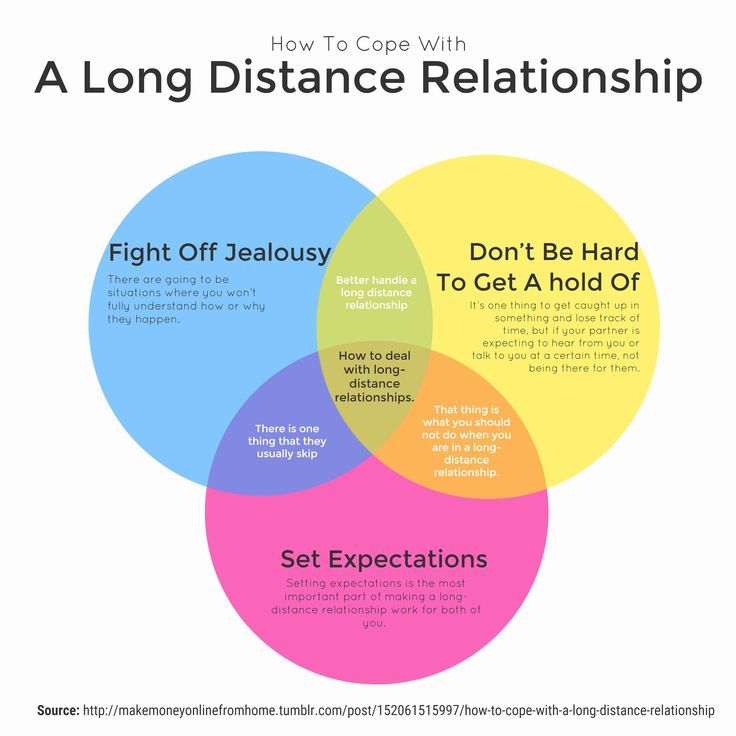 For instance, if you think:
For instance, if you think:
"I want him/her to love me."
Ask yourself "What if he/she doesn't?"
"I don't want him/her to leave me?"
Then ask yourself "What if she/he does?"
"I'll be all alone"
"So what if you're all alone?"
"I'll be sad."
"So what if you're sad?"
"I won't be able to stand it."
"And what if you can't stand it?"
"What's the point in living then?"
By having this type of conversation with yourself you can identify the thinking at the deeper levels that contribute to the irrational jealousy. In this case, the person is identifying fear of abandonment, inability to tolerate negative emotions, and catastrophic predictions. Once you identify the source of the thinking you can then begin to challenge the accuracy of these thoughts.
For instance, a catastrophic prediction is the belief that the worst case scenario will occur. What is the likelihood that the worst case scenario will occur? You might believe that since other people have left you it is likely that your current spouse will leave you. Is that accurate? Is this person the same as previous people you've with whom you've had relationships? Is this person likely to cheat on you? If your answer is truly "yes" then there may be a problem with how you are choosing partners. Otherwise, it is important to recognize that aside from your jealous behaviors causing the person to leave, the catastrophic prediction is not likely to be accurate.
Is that accurate? Is this person the same as previous people you've with whom you've had relationships? Is this person likely to cheat on you? If your answer is truly "yes" then there may be a problem with how you are choosing partners. Otherwise, it is important to recognize that aside from your jealous behaviors causing the person to leave, the catastrophic prediction is not likely to be accurate.
The inability to tolerate negative emotions, especially sadness and loneliness, is common with irrational jealousy. Often people believe that these emotions will never end and they don't want to feel sad or lonely forever. However, the grief process is time-limited if we allow ourselves to fully feel the grief. When we work through the emotions by experiencing them rather than avoiding them we are able to resolve the grief. Frequently, though, due to fear of experiencing the unpleasant emotions, individuals will become stuck in the grief especially the anger stage of grief. Anger is a self-protective emotion that is often easier for people than the overwhelming sadness. However, some people may be uncomfortable with anger and they may become stuck in the bargaining stage such as believing they can still work it out.
Anger is a self-protective emotion that is often easier for people than the overwhelming sadness. However, some people may be uncomfortable with anger and they may become stuck in the bargaining stage such as believing they can still work it out.
These are just a couple of the ways that inaccurate thinking can occur. However, once you have identified the inaccuracies in your thinking, the next step is to remind yourself frequently of how your thinking is inaccurate. Sometimes it is useful to even write down the more accurate thinking and carry it with you so you can read it frequently. The more often you engage in the accurate thinking, the more quickly your thinking will change. Try an experiment: before you start to change your thinking, spend a day counting each time you have a jealous thought--not each episode of jealousy, but each specific thought. For many people, this will add up into the hundreds. When you have obtained this baseline, you will have an idea of how many times you need to repeat the accurate thoughts to yourself each day because it needs to approximate this number. Another way to obtain the necessary repetition is to record the accurate thoughts and then listen to them over and over. As you achieve enough repetition, you will notice that your automatic thoughts will start to change.
Another way to obtain the necessary repetition is to record the accurate thoughts and then listen to them over and over. As you achieve enough repetition, you will notice that your automatic thoughts will start to change.
This is not a simple process. However, it is like any new skill you want to learn. You can't expect to drive a car without learning how and then practicing. the same is true of changing thinking: we need to learn the method and then practice.
Step 3. Stop Jealous Self-Talk
Refuse to engage in the jealous self-talk.
Whenever you engage in the jealous self-talk, internally tell yourself to "shut up." You may need to do this repeatedly, but you want to do whatever is necessary to not listen to yourself on this topic. Some people use the rubber band method which involves the aversive stimulus of snapping a rubber band on your wrist whenever you have the jealous self-talk.
If you worked through the above exercise involving identifying the irrational self-talk about the jealousy, you have probably identified some statements that occur frequently. Sometimes there may not be a clear statement, but instead, you may have images. Frequently, jealous people will have images of their loved one with another person. Images are often more powerful than the thoughts and can easily occur with great frequency.
Sometimes there may not be a clear statement, but instead, you may have images. Frequently, jealous people will have images of their loved one with another person. Images are often more powerful than the thoughts and can easily occur with great frequency.
Once you have identified the jealous self-talk or the jealous images, it is important to reduce the frequency of these thoughts. The more you allow these thoughts or images, the more you reinforce your belief in them and they appear more real to you. Images are especially powerful in this regard. So, for many people it is not enough to just identify the irrational thoughts and challenge their accuracy, it is also crucial to work on stopping the irrational thoughts and images.
The techniques that help do this are called "thought-stopping techniques" and they can take a variety of forms. You might try several different ones to determine what works best for you or you might develop one that works according to your best reinforcement style. For instance, a person who is strongly visual and is being distressed by images causing jealousy, may try to picture a stop sign or a big "X" whenever the images occur. This procedure can even be reinforced initially by using an actual picture of a stop sign that you look at whenever you have the images.
For instance, a person who is strongly visual and is being distressed by images causing jealousy, may try to picture a stop sign or a big "X" whenever the images occur. This procedure can even be reinforced initially by using an actual picture of a stop sign that you look at whenever you have the images.
In addition, you could practice the thought-stopping by spending 20 minutes a day deliberately creating the images in your mind and then immediately stopping them by looking at the stop sign and visualizing it. So in a single practice session you could create the image a hundred times and stop it with the visual stop sign. The purpose of this exercise is that when the image should occur unexpectedly, you will be more prepared for it.
Another technique is to firmly tell yourself "Stop!" whenever a jealous thought occurs. Again, you could do similar practice sessions of deliberately creating the thought and telling yourself "Stop!" immediately afterward. If the "Stop!" isn't enough to disrupt the thought process, you may try saying it aloud during your practice sessions or pair it with a loud obnoxious noise like a whistle.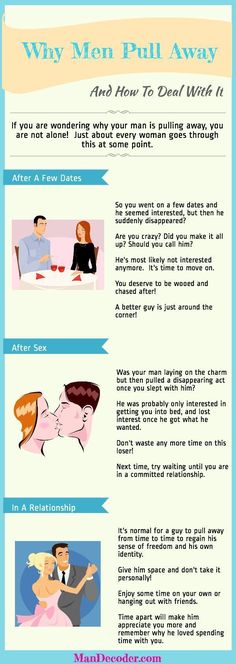 The pairing will allow you to disrupt the thought so that eventually just thinking "Stop!" will be enough.
The pairing will allow you to disrupt the thought so that eventually just thinking "Stop!" will be enough.
Another technique is the rubber band technique which involves wearing a rubber band on your wrist and snapping it whenever you have a jealous thought or image. All of these techniques are considered aversive conditioning techniques and the rubber band technique is the most aversive since it involves a mild pain stimulus. The purpose of aversive conditioning techniques is to teach your brain that is not okay to engage in the jealous thinking or images. Therefore, you prevent your brain from traveling down that automatic pathway of jealous thoughts and images. You are creating a choice for yourself.
Step 4. Improve Self-Esteem
Remember that irrational jealousy is not about your spouse but is about yourself. Use the presence of jealous feelings to remind yourself that you need to focus on improving your self-esteem. Although improving self-esteem is another entire topic to itself, generally, you need to give yourself positive self-statements and engage in behaviors that make you feel good about yourself.
Improving self-esteem is obviously an extensive topic. Many individuals who experience irrational jealousy may not recognize the self-esteem issues. This may particularly be the case when they are over-compensating with perfectionistic tendencies. However, if you listen to yourself, how often are you demanding and self-critical? If you are not aware of being self-critical, how often are you critical of others? Often, our criticisms of others can provide us with clues about our expectations for ourselves. Some individuals may even argue that these expectations are reasonable and a minimal requirement for human beings. If you find yourself in that category, you may first need to address perfectionistic demands and start challenging what is reasonable before you can address the self-esteem issues.
However, if you have already started the first three steps towards dealing with irrational jealousy, you are also beginning to address the self-esteem issues. To address these issues more in-depth would take a book. In fact, the best technique I have found is in the book "Self-Esteem" by Matthew McKay. The first three chapters provide an overview of understanding the pathological critic and the fourth chapter provides an excellent exercise that addresses changing the self-esteem. It involves writing down all your strengths and weaknesses in seven different areas of self-esteem. Then, you re-word the negatives to make them more neutral or even positive such as you might do for a job resume. Finally, you write a detailed description of yourself based on these re-worded attributes, and again, use the technique of repetition to change your thinking about yourself by reading this description daily or more.
In fact, the best technique I have found is in the book "Self-Esteem" by Matthew McKay. The first three chapters provide an overview of understanding the pathological critic and the fourth chapter provides an excellent exercise that addresses changing the self-esteem. It involves writing down all your strengths and weaknesses in seven different areas of self-esteem. Then, you re-word the negatives to make them more neutral or even positive such as you might do for a job resume. Finally, you write a detailed description of yourself based on these re-worded attributes, and again, use the technique of repetition to change your thinking about yourself by reading this description daily or more.
Also, read 20 Steps to Better Self-Esteem.
Step 5. Learn to be vulnerable and to develop emotional intimacy.
For any relationship to be successful, you must be able to take risks. There are many ways to do this and you need to determine by assessing yourself what are the best ways for you to take risks. For instance, if you feel insecure, you might share these feelings with your spouse and talk about ways your spouse can help you feel more secure. Or if you are afraid of being vulnerable, you might decide to take small risks of sharing yourself, your feelings, and your fears with your spouse. Sometimes the process of developing awareness and challenging irrational beliefs may be too difficult to accomplish alone and a person may need assistance from a therapist. However, typically a good cognitive-behavioral therapist can point you in the right direction within a few sessions and then most of the work is up to you.
For instance, if you feel insecure, you might share these feelings with your spouse and talk about ways your spouse can help you feel more secure. Or if you are afraid of being vulnerable, you might decide to take small risks of sharing yourself, your feelings, and your fears with your spouse. Sometimes the process of developing awareness and challenging irrational beliefs may be too difficult to accomplish alone and a person may need assistance from a therapist. However, typically a good cognitive-behavioral therapist can point you in the right direction within a few sessions and then most of the work is up to you.
Copyright © 2000, 2009 by Monica A. Frank, Ph.D. and www.excelatlife.com Permission to reprint this article is granted if it includes this entire copyright and link.
Understanding healthy and unhealthy jealousy
Whether it’s a mild or major case, jealousy can have a big impact on your relationship. You may feel jealousy when you experience the heightened threat from a rival. Most of us become jealous when we see our spouse having a great time with a person of the opposite sex – especially if that person seems a little too friendly. No matter how much your spouse may attempt to reassure you, another person’s interest in him or her raises all your red flags.
Most of us become jealous when we see our spouse having a great time with a person of the opposite sex – especially if that person seems a little too friendly. No matter how much your spouse may attempt to reassure you, another person’s interest in him or her raises all your red flags.
Two types of jealousy
Jealousy can be either healthy or unhealthy. Healthy jealousy is a means to guard your territory and comes from a sincere care and commitment to a relationship. On the other hand, unhealthy jealousy manifests itself through lies, threats, self-pity, and feelings of inadequacy, inferiority and insecurity.
The good kind
Healthy jealousy guards the heart of a marriage because it:
- shows your commitment to the relationship
- protects your marriage by safeguarding the relationship against evil attacks
- deepens your openness with each other and makes you accountable through honest communication
- helps you confront major threats to your marriage and head them off before they become major problems
God calls you to respect your spouse’s jealousy that is a warning of danger ahead.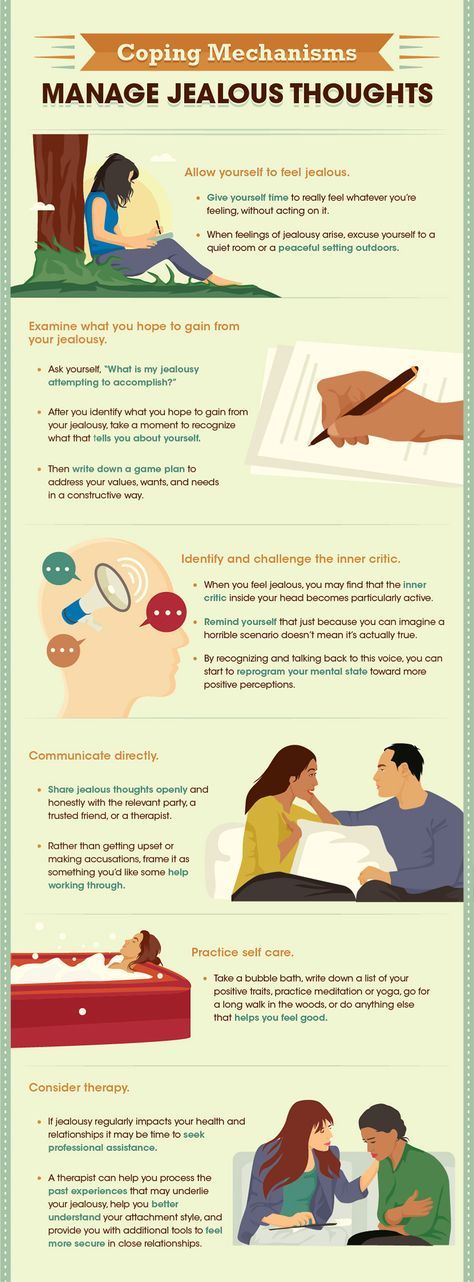 If your spouse is a secure person and desires to protect your marriage against cracks, you need to listen. Confront the issue head-on by finding the reason for the jealousy, then making changes to keep you both out of danger.
If your spouse is a secure person and desires to protect your marriage against cracks, you need to listen. Confront the issue head-on by finding the reason for the jealousy, then making changes to keep you both out of danger.
Wives: Trust your husband’s instincts. He knows how men think, what they want and how they pursue it. So, it would be foolish of you not to heed his warning.
Men: Trust your wife’s instincts. If she suggests that another woman is behaving inappropriately, your wife is probably right. Most women have radar, an innate alertness to nonverbal communication and an ability to translate body language and tone into emotional facts. Your wife probably is able to see these things clearly, so don’t criticize or blame her warnings on insecurity.
The bad
Unhealthy jealousy is altogether different. It stems from comparing yourself to others and feeling inadequate, unimportant, inferior and pitiful. Some spouses have experienced a lot of loss in life – whether divorce, death or abandonment in childhood – and they may bring unresolved issues into the relationship in the form of jealousy. Yet when a person carries this jealousy to pathological extremes, it will dominate a relationship.
Yet when a person carries this jealousy to pathological extremes, it will dominate a relationship.
A chronically jealous spouse will try to control a relationship through exaggeration, self-pity, lies, threats and/or manipulation. When the other partner resists, the jealous person reacts by becoming even more controlling. Then the other partner resists further by confiding in a friend or seeking relief outside the marriage. Sometimes this can become a downward spiral.
Here are just some of the effects of unhealthy jealousy:
- You doubt your spouse’s honesty and wrongfully accuse him or her, pushing your spouse away.
- You feel worthless and unimportant.
- You become frustrated and overwhelmed.
- You have a desire to control.
- You have less sexual intimacy with your spouse.
When jealousy becomes unhealthy it is destructive and frustrating to contend with. Love is not jealous and possessive. True love enables you to aim for what is best for the other person – not what is best for you.
Love is patient, love is kind. It does not envy, it does not boast, it is not proud. It is not rude, it is not self-seeking, it is not easily angered, it keeps no record of wrongs. Love does not delight in evil but rejoices with the truth. It always protects, always trusts, always hopes, always perseveres. (1 Corinthians 13:4-7)
So how do you deal with unhealthy jealousy in your marriage? Here are some tips for both spouses – whether you have or are a jealous spouse.
If you have a jealous spouse:
- Assess whether you are doing something that is provoking the jealousy.
- Stop that activity or involvement for a time to show your spouse that you’re committed to your marriage relationship.
- Be demonstrative in love toward your spouse.
- Talk openly with your spouse about the problem. Get his or her take on it (the feelings may be legitimate), and work together to find a solution.
If you are the jealous spouse:
- Listen to a few trusted friends.
 Your jealousy may be your own problem, not your spouse’s.
Your jealousy may be your own problem, not your spouse’s. - Be honest with yourself. Ask what is causing the feelings. Are you trying to manipulate?
- Spend time with God.
- Think about your spouse more positively. Jealous people use their anxious thoughts and suspicions as cues to misread anything that their spouses do. Instead, take a deep breath and pray – for yourself and for your spouse.
- Express your feelings to your spouse. Own up to your jealousy. Be honest without being blaming or manipulative.
Portions of this article were adapted from The Great Marriage Q&A Book, © 2006 Dr. Gary and Barbara Rosberg. All rights reserved. Published by Tyndale House Publishers, Inc. To order this resource or to find out more about the Rosbergs, visit Drgaryandbarb.com.
Married for over 30 years, the parents of two adult daughters and five grandchildren, Dr. Gary and Barb Rosberg have a unique blend of insight and wisdom that touches people of all ages. Together with Gary's 25,000 hours of counselling experience and Barbara's gift of encouragement and Biblical teaching, they are equipping thousands of families through their interactive daily radio program, conferences and marriage and family resources.
Together with Gary's 25,000 hours of counselling experience and Barbara's gift of encouragement and Biblical teaching, they are equipping thousands of families through their interactive daily radio program, conferences and marriage and family resources.
Portions of this article were adapted from The Great Marriage Q&A Book, © 2006 Dr. Gary and Barbara Rosberg. All rights reserved. Published by Tyndale House Publishers, Inc. To order this resource or to find out more about the Rosbergs, visit Drgaryandbarb.com.
If you liked this article and would like to go deeper, we have some helpful resources below.
Free advice on marriage, parenting and Christian living delivered straight to your inbox
How to deal with jealousy: advice from a psychologist in the capital
Jealousy is one of the most common reasons women turn to psychologists. Many women tend to experience a constant painful state of inner fear, fear of losing an object that is significant to them. According to experts, to one degree or another, jealousy is present in everyone. We can be jealous of friends, colleagues, family members, it all depends on the degree of emotional closeness. What is jealousy and where does it come from, says Nina Kizrina, a psychologist at the Hope branch of the Crisis Center for Women and Children. nine0004
According to experts, to one degree or another, jealousy is present in everyone. We can be jealous of friends, colleagues, family members, it all depends on the degree of emotional closeness. What is jealousy and where does it come from, says Nina Kizrina, a psychologist at the Hope branch of the Crisis Center for Women and Children. nine0004
Bring peace to the family
32-year-old Tatyana turned to the Crisis Center for Women and Children. She has been married to Mikhail for 12 years, her husband holds a managerial position and spends a lot of time at work.
Until June 2020, the woman had no idea that her husband could cheat on her. But after the long-term and happy marriage of her best friend collapsed before our eyes due to infidelity, Tatyana was seriously worried. In just a few weeks, she worked herself up so that she could not close her eyes. It began to seem to the woman that Mikhail had been deceiving her for a long time. Thus began the endless surveillance of her husband, and over time, this led to frequent conflicts in the family, which did not exist before. Tatyana realized that unreasonable jealousy would not lead to good, and turned to professional psychologists for help. nine0011
Thus began the endless surveillance of her husband, and over time, this led to frequent conflicts in the family, which did not exist before. Tatyana realized that unreasonable jealousy would not lead to good, and turned to professional psychologists for help. nine0011
“The psychologist has developed a plan for individual interviews. Meetings with Tatyana were held once or twice a week for three months. In the process of work, it was possible to restore the emotional background, remove obsessive and disturbing thoughts, harmonize the relationship between the spouses and return peace to the family, ”says the specialist .
What is jealousy like
Jealousy is a bright, negative, emotional sense of possessiveness, reinforced by egoism, the desire to completely control another person, which is usually expressed in distrust, suspicion, in painful doubts about loyalty and love. nine0007
Psychologists distinguish three types of jealousy: rational, irrational, delusional jealousy.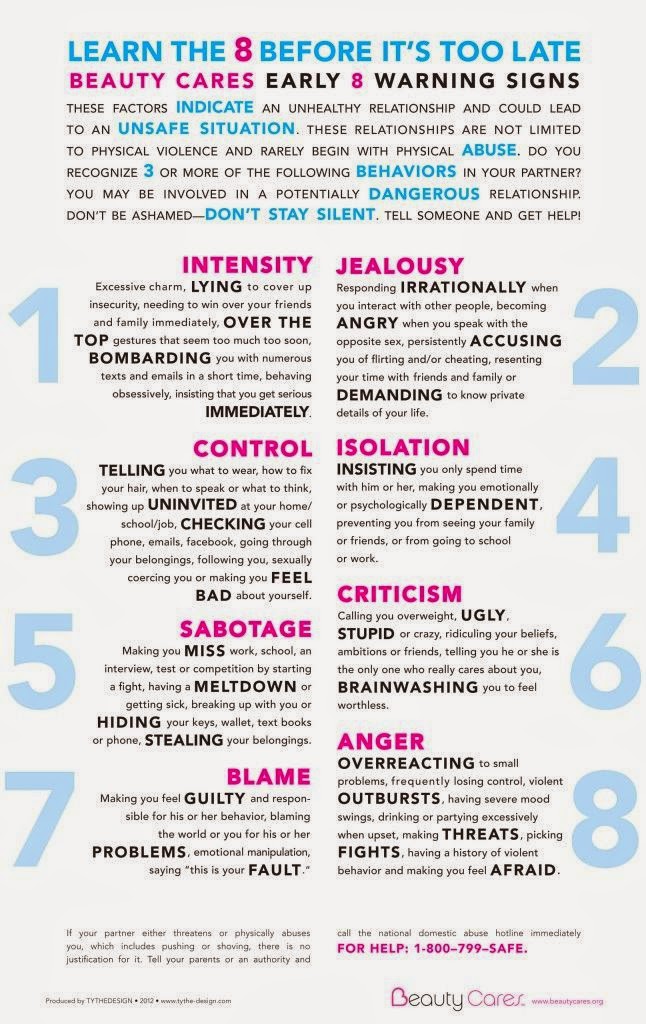
- Rational jealousy arises when there is really a real threat to lose the object of love.
- Irrational jealousy is not connected with reality and is based mainly on imagination and fantasy. It occurs in people with a vivid imagination who suffer from inferiority complexes, who have suffered mental trauma in childhood. nine0035 Delusions of jealousy - inadequate, unreasonable jealousy, reaching the point of mental pathology. Basically, this type of jealousy occurs in people with mental disorders (schizophrenia, paranoid disorder, alcoholism, drug addiction).
How jealousy is born
The feeling of jealousy is formed in the period from one to three years. In the family, the child learns how to interact with each other, what should be the relationship of parents. The kid sees how mom and dad communicate, take care of each other, solve problems. nine0007
As a rule, a jealous woman in most cases chooses a man for her husband who will stimulate this feeling.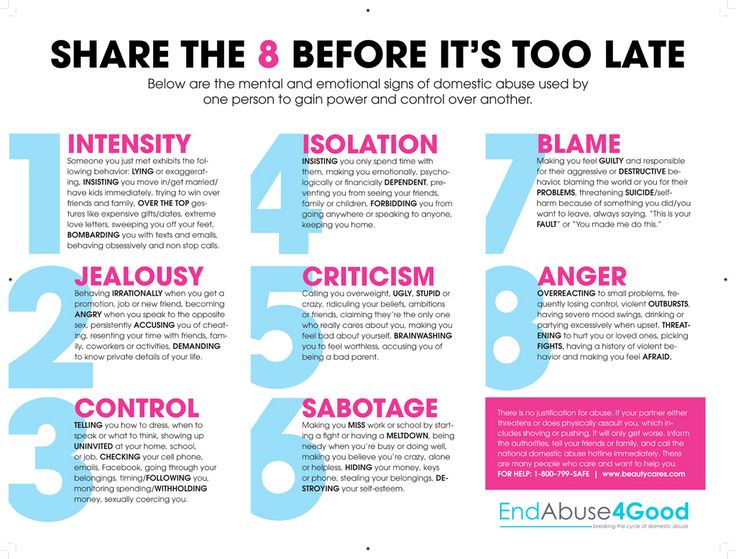 The origins of the causes of jealousy come from parent-child relationships - lack of love in childhood, physical or sexual abuse, genetic predisposition, childhood psychological trauma. Growing up, a jealous woman on an unconscious level begins to play her scenario from childhood - the psychological trauma of rejection, fearing its repetition. Later, this behavior acts as a form of betrayal prevention. nine0007
The origins of the causes of jealousy come from parent-child relationships - lack of love in childhood, physical or sexual abuse, genetic predisposition, childhood psychological trauma. Growing up, a jealous woman on an unconscious level begins to play her scenario from childhood - the psychological trauma of rejection, fearing its repetition. Later, this behavior acts as a form of betrayal prevention. nine0007
« Jealousy may be caused by competition between siblings who claim special status from their parents; identification with the deceived parent when the other parent is cheating; dysfunctional relationships in the parental family - alcoholism, physical abuse, infidelity of the parent of the opposite sex , ”says the specialist.
Causes of jealousy in older age - self-doubt, low self-esteem in sexual terms, the presence of an inferiority complex, uselessness, underestimation of one's own abilities and capabilities. Also, the causes of jealousy can be emotional dependence, fear of losing an object of love or loneliness, an excessive sense of ownership, an unlimited right to possess another person. nine0007
nine0007
One of the manifestations of jealousy is sadomasochism. The experiences of jealousy here are closely connected with self-torment, with manifestations of masochistic tendencies.
“ The jealous one gets a kind of pleasure from the torment experienced during constant surveillance, looking for evidence of a partner’s betrayal”, - Svetlana notes.
An important cause of jealousy is the neurotic need for control. If a jealous woman misses the opportunity to control her partner, then she begins to panic, jealousy increases significantly. nine0007
Another reason for jealousy is the partner's provocative behavior. In this case, the partner unconsciously provokes jealousy in order to get "proof of love", focusing on the formula "jealous means love." Therefore, such women always have a dramatic relationship with a partner, she constantly needs confirmation of love. This indicates a high degree of codependency.
“If there is silence at home, there are no manifestations from the husband, declarations of love, scandals and manifestations of jealousy, then she becomes unbearable - she needs an emotional shake-up, a discharge that she is used to receiving in a dysfunctional parental family,” says psychologist.
How to get rid of jealousy
- If you decide to fight this negative and destructive feeling, then always proceed from the idea that your partner is faithful to you. By continuing to think that he is cheating on you, you will never be able to cope with jealousy.
- Realize that the reason for your jealousy lies not in the actions of your partner, but in your own fears of the horrors that your imagination draws: betrayal, betrayal, loneliness. nine0038
- Having understood that the reason for your jealousy is fears and complexes, do not expect your partner to do something magical, from which jealousy will be removed as if by hand. Will not take off. The only person who can pull you out of the swamp of jealousy before it completely destroys you completely is yourself.
- Replacement of fear. The best way to deal with fear is another fear. Stop being afraid that your loved one will cheat on you, start to fear that with your suspicions, scenes of jealousy and tantrums, you will finally destroy your relationship.
 When you are truly afraid of this, the feeling of jealousy will leave you forever. nine0038
When you are truly afraid of this, the feeling of jealousy will leave you forever. nine0038
If you find it difficult to cope with jealousy on your own, sign up for a consultation with professional psychologists. The specialists of "My Family Center" and "Crisis Center for Women and Children" will help you in such a difficult situation.
Press service of the Moscow Department of Labor and Social Protection
Destructive jealousy: 5 self-help techniques
132,099
Man and womanJealousy
Historically, jealousy is one of the methods of natural selection. People began to experience it at the moment of the transformation of sexual life - from polygamy to monogamy. It was at that moment that couples and families began to form. Along with stable unions came worries and fear: “Is my partner faithful to me, will I lose him and everything that we have now.”
Men and women: are there any differences?
Men are more prone to jealousy. And one of the basic grounds is the anxiety about whether they are raising their child. After all, a woman knows for sure that she is the mother of a child, but a man always has a small amount of doubt. That is why men are more sensitive to physical infidelity. nine0007
And one of the basic grounds is the anxiety about whether they are raising their child. After all, a woman knows for sure that she is the mother of a child, but a man always has a small amount of doubt. That is why men are more sensitive to physical infidelity. nine0007
Jealousy is formed differently in a woman. It is important for her that a man be emotionally attached to her, subtly feel the world of her feelings, emotions, experience unconditional love. This gives a sense of security: despite the great competition, the partner will stay with her and take care of their family. Therefore, women are more likely to experience emotional betrayal when a man falls in love with another.
What is jealousy?
Jealousy is a feeling that makes us afraid that the one we love may disappear from our lives. It makes you think of a fictional person who can take our place. Such thoughts are dangerous, especially when jealousy is groundless. The anxiety and fear that gives rise to jealousy is just a fantasy based on low self-esteem. nine0007
nine0007
Groundless jealousy is a manipulation method that is directly related to control. When a person is convinced that he is not so good, handsome, smart, that he cannot be loved and accepted as he is, he takes control of his partner's life.
A person with low self-esteem cannot believe that they can be loved and unconsciously tries to find a threat who is seen as a threat. They also calmly check bags, cars and all clothes for traces of lipstick, perfume, control debits from a bank card. nine0007They are constantly looking for confirmation of their fears and doubts, because they are internally convinced that the partner is only pretending, deceiving that he loves. These beliefs encourage you to persistently look for a catch in a relationship until it is found. And it does not matter that it will be more a figment of the imagination.
Such searches bring strong destructive experiences. A person begins to dramatize and think so much that he can fall into a deep depression or into an affective state that does not guarantee safety for the jealous person and his partner.
nine0007
Causes of jealousy
1. Low self-esteem
Low self-esteem is the foundation for jealousy. It is on it that high walls of pathological mistrust and control are built. So, if he is convinced that he is bad in something, and there is someone around his partner who, on the contrary, is good in this aspect, then this becomes a trigger for jealousy and conflict.
For example, if a woman believes that she has a plump figure, then when she sees her man surrounded by more slender women, she will be jealous. If a man believes that he is short and not rich enough, then all representatives of the stronger sex are taller and wealthier than him and will be in the zone of jealousy. nine0007
What makes a person feel vulnerable will determine his jealousy towards others. It is for these reasons that jealousy can be compared with envy: "I am angry at a person who is more beautiful, smart, successful, rich."
2. Tendency to egocentrism
Jealousy is also inherent in people prone to despotism and egocentrism.
They consider their partner to be property, despite the fact that they themselves are prone to polygamy and adultery. Often they suspect a partner of similar actions, project their inner motives onto him, and attribute their inclinations to him. "If I cheat, then the partner behaves the same way." nine0007
Feeling guilty, they unconsciously turn on defense mechanisms that push them to intensify their aggressive search for evidence of their partner's infidelity. It helps to numb the guilt and calm down.
3. Attitudes from childhood
It should be remembered that jealousy is an energy-consuming feeling. It is formed in childhood, for example, when a girl hears from her mother that all men lie, they cannot be trusted, they always cheat. Growing up, the child becomes more and more rooted in this belief, which affects self-esteem and relationships with the opposite sex. nine0007
The paradox is that even the fidelity of a partner is not considered as an argument that can dispel doubts: "Do not trust - they will deceive you.
" A jealous person will always look for a reason for conflict. Ultimately, this threatens that the partner will begin to notice the low self-esteem of the jealous person and unconsciously compare him with other people.
Here the algorithm works: what we are afraid of, then overtakes us. And there is no mysticism in this algorithm. A person, by his own suggestions and suspicions, pushes another to bad deeds. nine0007
How to deal with jealousy?
First, analyze: is it based on real events or is it a manifestation of low self-esteem, egocentrism. If pathological jealousy is unfounded and you have already tortured yourself and your partner with it, then I recommend applying self-help techniques:
1. Strengthen jealousy at the level of emotions
When a feeling of jealousy has flooded over you, you need to transfer it from the mental field to the physical. Try to scream, beat the pillow, take a contrast shower, dance, grimacing, bring yourself to hysterical laughter.
Your goal is to do everything you can to expel this feeling and negative energy from your mind and body. nine0007
2. Talk frankly with your partner
Don't be afraid to talk about it. Explain what is bothering you. Share your fears, tell us at what moments this feeling awakens in you. If you are dear to a partner, then he will help you cope with baseless jealousy. If there are reasons, then you need to seriously think about the problem that exists in the relationship.
3. Don't be "Agent 007"
The more you hide from your partner (the lock code on your smartphone, laptop, tablet), the more likely it is to cause feelings of jealousy. As soon as you close something, you give a reason to think that you have something to hide. I strongly recommend not to be classified, thereby saving the partner from unnecessary reasons for jealousy. nine0007
4. Develop yourself
Start building self-esteem. Engage in self-education to train the mind, sports to train the body.







